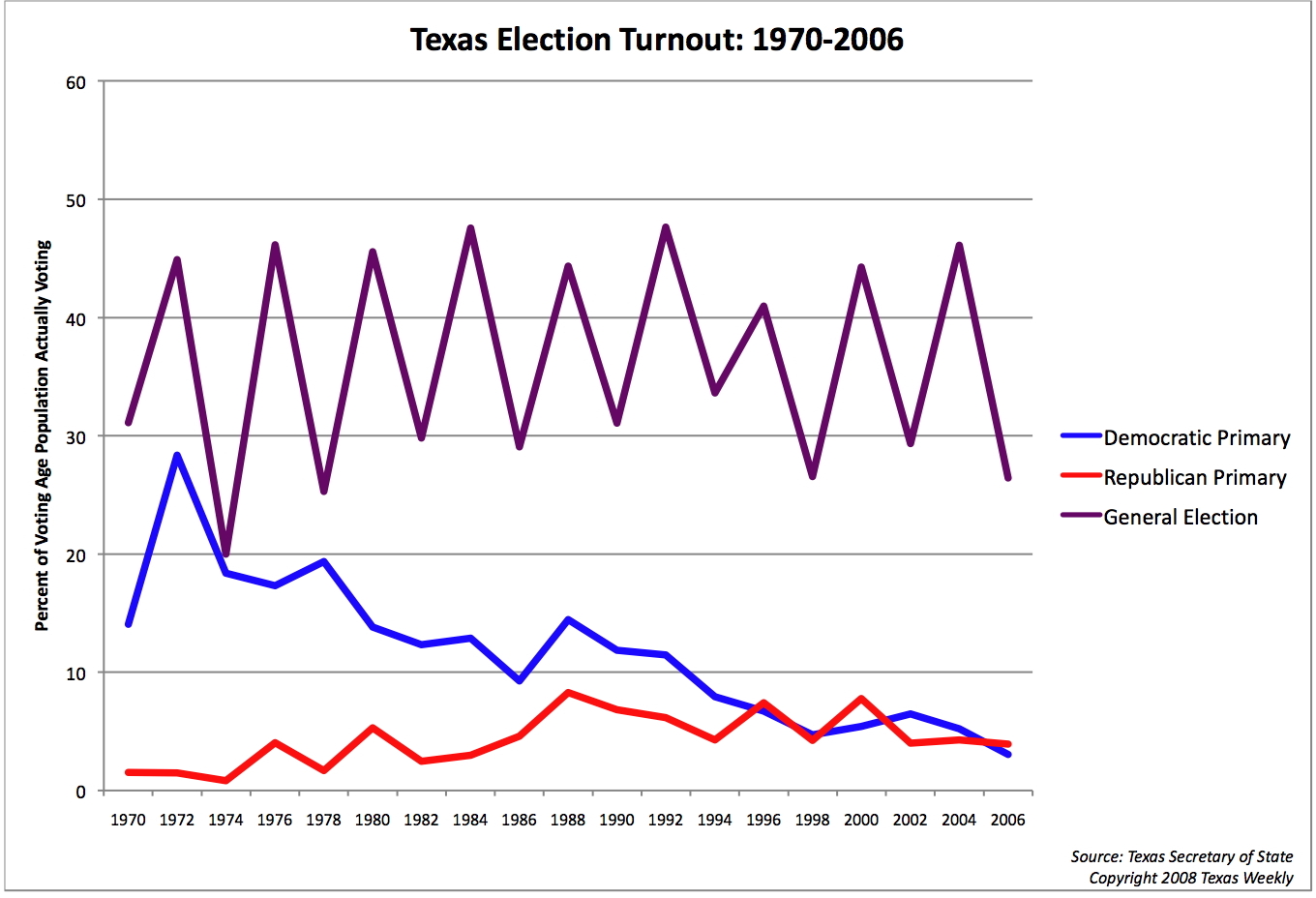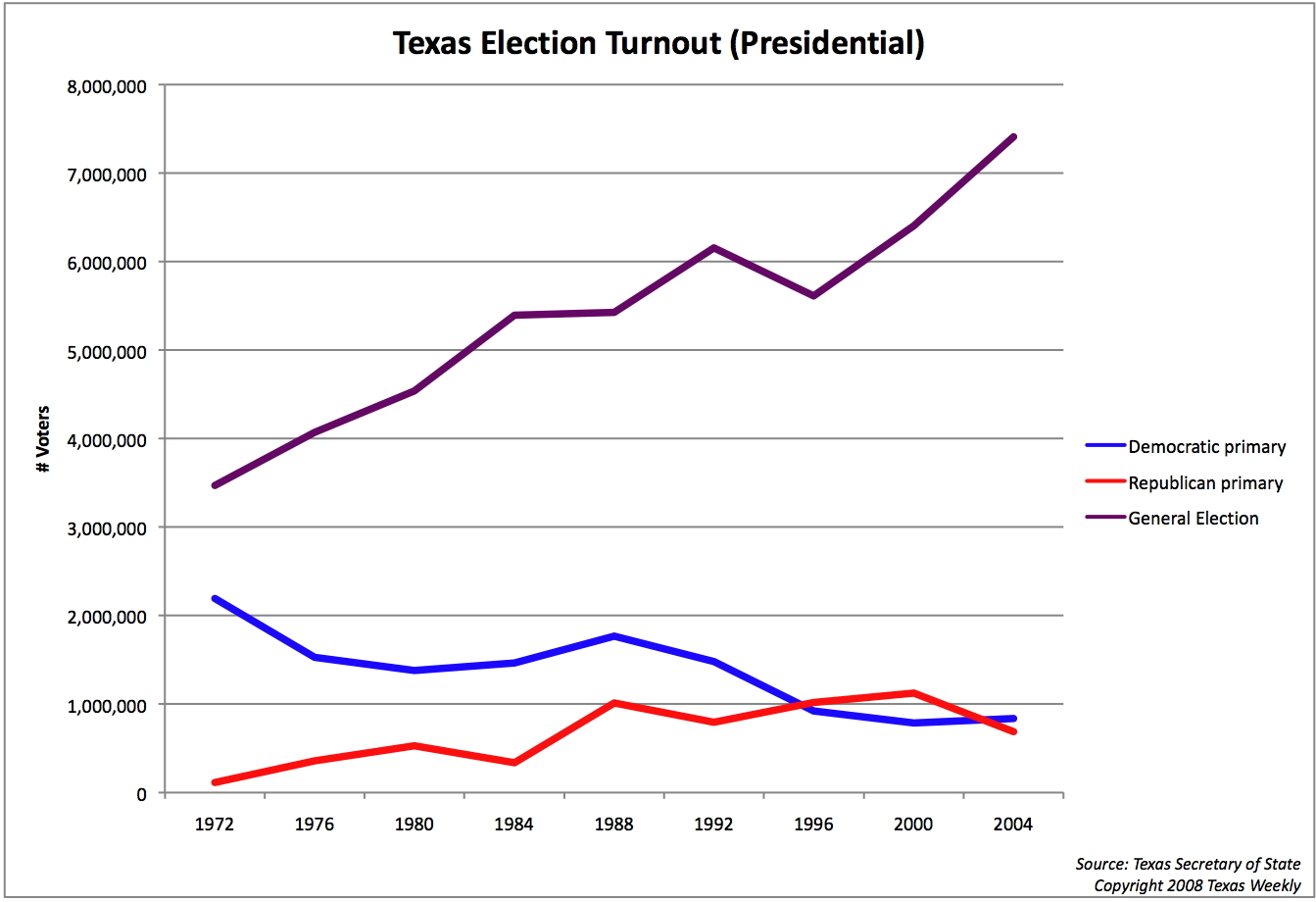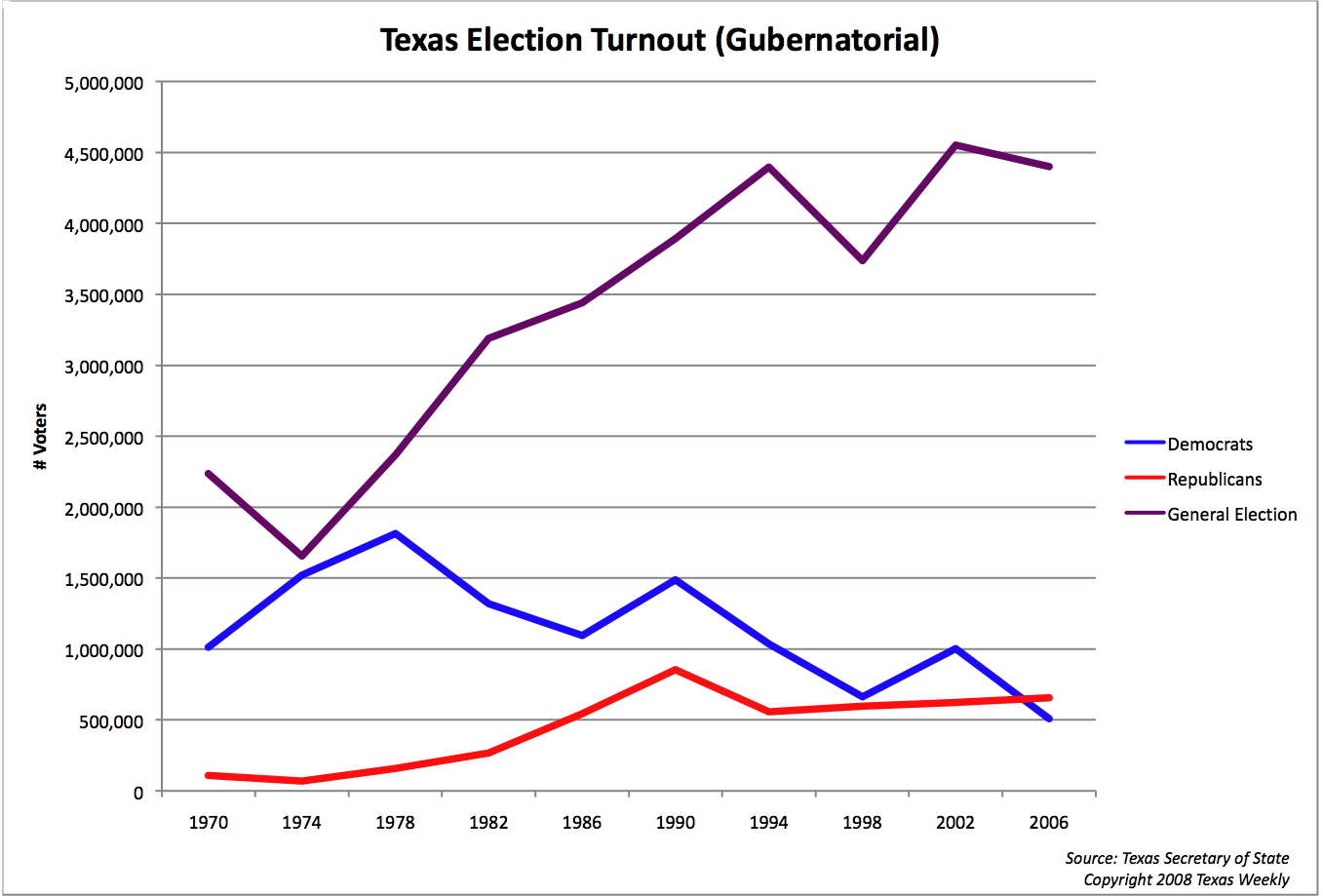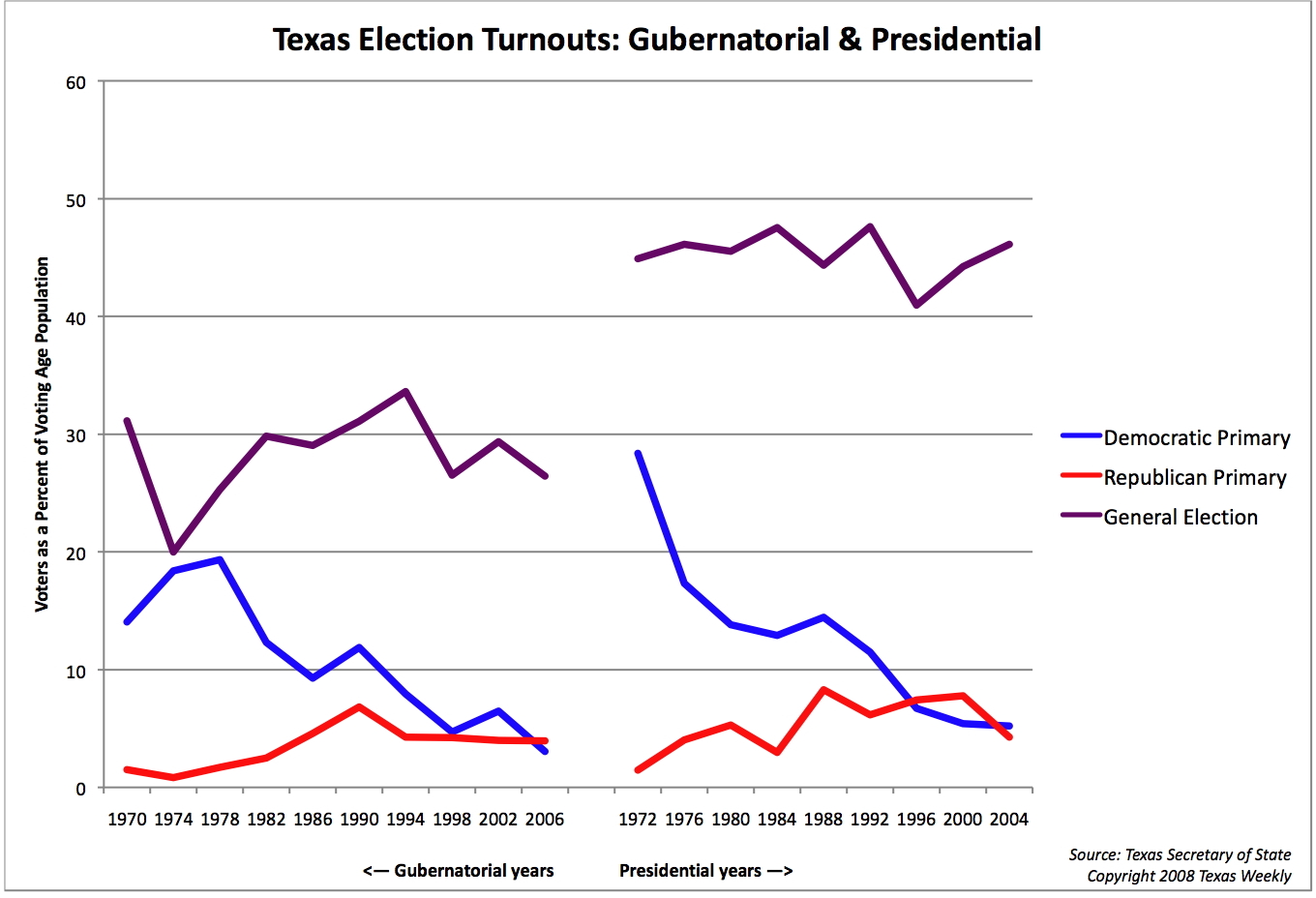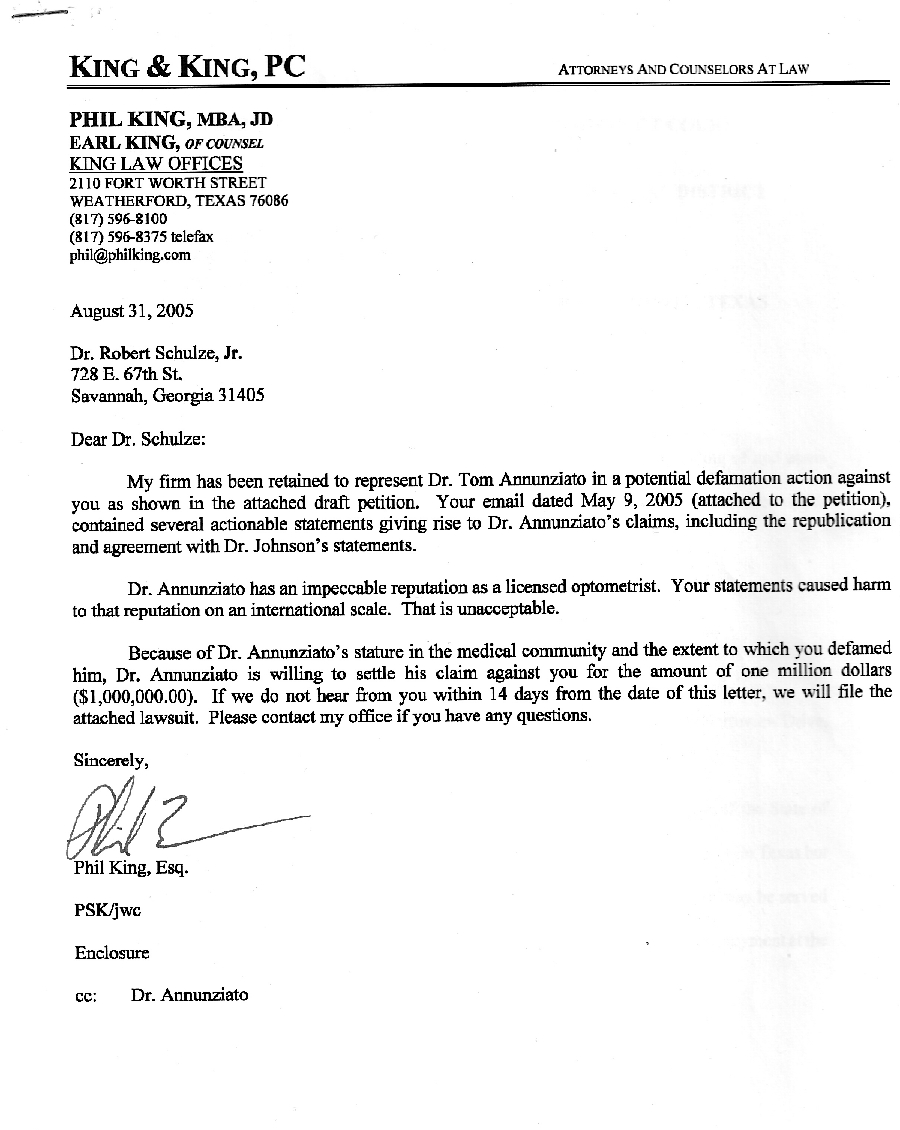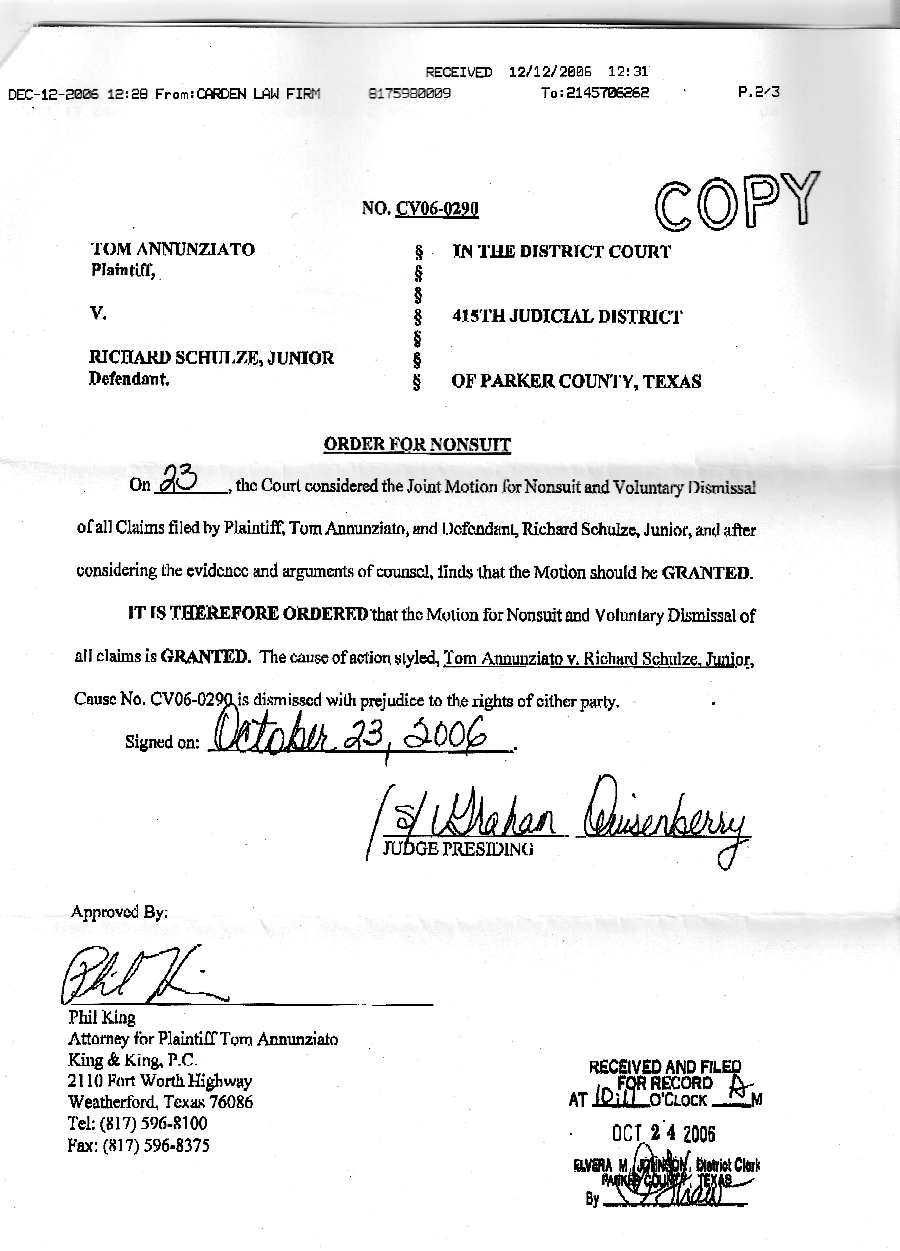From the sidelines, a handful of state judges could shake up the elections for their colleagues on the field.
Judges on the state's two high courts are mired in bad news involving the death penalty, arson, tampering with evidence, and using campaign funds, illegally, for private travel. The jurists generating the headlines aren't on the ballot this year, but colleagues who are up for reelection could suffer just the same. Judicial races are down-ballot affairs and voters sometimes know more about the party they're for or the headlines they've seen than about the people whose names are on the ballot.
Voters will get a shot at six statewide judges in 2008. Only one, Court of Criminal Appeals Judge Paul Womack, has a primary opponent. Another, Judge Cathy Cochran of that same court, faces only a Libertarian opponent. The other four — Supreme Court Justices Wallace Jefferson, Dale Wainwright, and Phil Johnson, and Court of Criminal Appeals Judge Tom Price — will face Democratic opponents in November.
The common denominator is that they're all Republicans — it's like a private party over there. Fingers are crossing on the Democratic and Libertarian sides that voters will link the party with the recent messes. The GOP candidates are hoping this too shall pass.
Most voters don't pay attention to the judicial elections; they check a box for the party and not the person. Max Sherman, a former state senator, and dean of the LBJ School at the University of Texas, says that the general public doesn't have much reason to pay attention to these races, but those in the legal community certainly have their eyes and ears open. "They don't want to see the court under any cloud," Sherman says.
Here's what the GOP candidates have to worry about:
Last month, Supreme Court Justice David Medina and his wife were indicted (she for arson, he for tampering with evidence) in connection with a fire that destroyed their home in Spring. Harris County District Attorney Chuck Rosenthal said there isn't enough evidence and asked a court to dismiss the indictment.
Rosenthal has his own trouble. He hasn't been able to escape the media microscope after the discovery of e-mails — covering the trifecta of pornography, racism and politics — sent from his office computer. He's not resigning, but he won't be running for DA again.
Medina and two of his Supreme Court colleagues, Justices Paul Green and Nathan Hecht, have also been accused of using campaign money for personal travel. The San Antonio Express-News reported Medina reimbursed himself for travel with about $57,000 from his campaign. The judge told the paper his accountant gave him the green light on that one, and that he intends to pay the money back to the campaign.
Texas Watch, a self-appointed watchdog group, filed a complaint with the Ethics Commission saying Green used campaign contributions to pay for trips to and from his home in San Antonio. Hecht is dealing with an ongoing investigation of a similar nature. Texas Watch says Hecht spent almost $10,000 on travel between Austin and Dallas last year, and they've complained to the ethics regulators about it. Hecht said he was meeting with his supporters, according to the Express-News. He's not on the ballot until 2012.
Wainwright, the incumbent for Place 7 on the Supreme Court, is on the ballot this year. He says voters will reelect all three incumbents.
"I'm confident the people of Texas will understand we've done a good job, not perfect, but we've done a good job," says Wainwright. "There's going to be an attempt to sully the court as an institution... but I believe the people of this state will evaluate the facts, separate from suggestion and innuendo."
Johnson, Place 8, isn't sure how the public will react, but he doesn't think the bad news helps. "It's a civic duty to find out about the candidates and look at their individual qualifications," Johnson says. He says it's hard to get the public "fired up" for these elections and although he wants more public interest, he says, "I don't want the public to become interested only in the negative."
Others hope the public stays interested, like Susan Criss of Galveston, one of Johnson's Democratic opponents. "We've been campaigning on the need for change and when these stories are in the paper, it emphasizes that what we're saying is true," Criss says. She adds that while most people don't know the names of any judges before they vote, there has been enough bad press lately to make a change. "There's too much of it affecting too many of them," Criss says. "I think people will find a pattern," she adds. "We've been in Bush's Texas for too long and they've been bragging about it for years."
Jim Jordan is a Dallas Democrat running against Chief Justice Jefferson. "I think it's exposing the problems we have when we have a one party state," he says. "People don't want to have politics in the courtroom." Jordan says he thinks this could get more people interested in the election.
But even the courtroom can't escape politics if voters continue with party loyalties. Former Chief Justice Tom Phillips says "the judicial elections are almost a pure measure of party loyalty" and that it would be "an extremely unusual situation" for voters to turn their backs on their party.
Beaumont Libertarian Tom Oxford, running against Jefferson, says it's unfortunate that Medina, Green and Hecht aren't on the ballot. "It doesn't bode well for the Republican Party... it tries to present itself as the morality party, a position I've never bought." While Oxford admits a Libertarian doesn't have much chance in statewide race, he predicts some shifts in party loyalties from voters. "The public pays attention when a Supreme Court justice is accused of burning his house down for financial gain," he says [editor's note— Medina's house was uninsured, and there's no indication his home was burned down for financial reasons].
The problems aren't confined to the state's highest civil court. They started with its twin on the criminal side. Sharon Keller, chief judge of the Texas Court of Criminal Appeals, started that fire last September when she refused to accept an appeal minutes after her office closed. As a result, convicted murderer Michael Richard was executed that night.
Cochran, the incumbent for Place 9 on that appellate court, doesn't think Keller's decision will affect her campaign, but she says any negative media about other judges is a concern for the system. "Anytime any of us hit the press, we all get nervous." She says the public should still have faith in the judicial system — and that the media should focus on educating the public on the system as a whole, not "the scandal du jour."
— by Karie Meltzer
Perry Endorses McCain
A day after Rudy Giuliani dropped out of the race for the GOP presidential nomination, Gov. Rick Perry said he — like Giuliani — will support U.S. Sen. John McCain.
Perry admitted he doesn't agree with McCain on some issues, but said his first priority is fighting the war on terror and that McCain is the best candidate for that job.
"He and I may not agree on every issue," Perry said. "But we do agree that this country cannot flinch when it comes to the war against Islamic terrorists."
Perry held his announcement for a day so he wouldn't step on Giuliani's endorsement on Wednesday. That lands him in the story with California Gov. Arnold Schwarzenegger, who's also endorsing the Arizona senator.
Perry said his initial choice of Giuliani over McCain was a difficult one to make. He said he "truly enjoyed working with" the former New York City mayor. He said he's known McCain for some time and that "it was a pretty short step for me to get from where I was 90 days ago to where I am now."
The Perry-McCain political math is similar to the Perry-Giuliani version. The Texas governor is acceptable to and known to many of the social conservatives in the party. He's from the South (that was more help to Giuliani than to McCain) and a bunch of his financial backers are big players in federal politics. Perry was dearer, politically, to Giuliani: He was one of the early backers. The McCain bandwagon is more crowded, now that the GOP can fit all of its candidates into a sedan.
Perry took flak from some conservatives for endorsing Giuliani, whose positions on gun laws, abortion and other issues don't sit well with socially conservative Republicans. McCain, too, has been at odds with that part of the GOP.
Asked about it, Perry repeated his line about terrorism as the top issue, and said the rest of those candidate positions don't represent any change in his own views.
"I certainly haven't changed my conservative beliefs... I'm just as conservative as I was five years ago and as I will be in five years," he said. And he said he likes what McCain has been saying about trying to hold the line on federal spending if he's elected.
What does he say to Republicans who are worried about McCain's politics? "Two words," Perry said. "Hillary Clinton." Asked what a Clinton presidency would mean, he added: "To hell in a hand basket would probably not be a good quote, but that's what comes to mind."
He has no plans to campaign with McCain before Super Tuesday next week, but said the two will probably make a trip together to the Texas-Mexico border to talk about security and immigration.
In a half-hour press conference in his office, Perry also said he thinks the presidential races will probably be all but over by the time Texans vote in March. "I suspect that on Wednesday morning [the day after Super Tuesday], there's not going to be much of a field left."
He said Texas would have mattered more if disagreements over local officials and resign-to-run laws hadn't prevented the Legislature from moving the primary to Super Tuesday.
Perry said the state's economy is healthy. There are economic clouds elsewhere, but he said Texas is growing twice as fast as the national economy and said "most governors would dearly love to have the Texas economy in their own states." He'll support a proposed federal economic stimulus package that sends money directly to taxpayers, but disagrees with proposals to send some or all of that money through state governments. "Flowing the money through state bureaucracies is not the most efficient way to do that," he said.
He said his office deletes emails after a week, but keep the records that really matter. He warned against making the government "a repository of 'I gotcha' emails". And he said the Legislature isn't likely to change things: "I imagine you'll get that changed right after you get their records," he said.
Perry backed away from enhanced drivers' licenses he earlier supported. It turns out that federal IDs are available that cover the same concerns without costing the state any money. An aide said later that his office was leaning toward the federal papers.
A November Special
Kyle Janek, a Houston anesthesiologist first elected to the Legislature in 1994, plans to leave the Texas Senate this spring — two years before his term ends. He'll likely be replaced in a special election in November.
He initially planned to resign March 1, which would have made it possible to hold a special election May 10 to replace him. But he says he decided to make that last day a bit later in the spring so that the special will be in November. That way, voters won't get stuck with primaries in March, runoffs in April, a special election in May and a possible runoff in June. They'll just vote on the normal election day in November, with a possible December runoff. It also gives potential candidates more time to line up their ducks.
Janek, who served in the House from 1995 and was elected to the Senate in 2002, moved his family to Austin last year. Speculation about his resignation has dogged him since the end of the last legislative session.
Half the Senate is up for reelection this year, but Janek's not in that bunch. Whoever replaces him will have to run again in 2010, when his term expires. Janek himself won the seat in a special election in November 2002, after Sen. J.E. "Buster" Brown, R-Lake Jackson, resigned early.
This is no freebie in the political sense — House members can't run for that Senate seat without giving up their current positions (that's purely because of the timing; if the election was any day other than the November election when the House is also on the ballot, representatives would be able to run without risking their current seats). Rep. Charlie Howard, R-Sugar Land, already told the Houston Chronicle he's interested, as did former Harris County GOP Chairman Gary Polland. The only Democratic House member who lives in the district is Rep. Scott Hochberg, D-Houston.
The district includes parts of six counties: Brazoria, Chambers, Fort Bend, Galveston, Harris, and Jefferson. It was at one time a very solid Republican district, but that's less true than it used to be. Republicans in statewide elections usually win there, but by smaller margins than they get statewide. The Texas Weekly Index — our measure of how a district voted in the last two general elections — leans 15.4 percentage points in favor of the GOP: That was the margin for statewide Republicans over statewide Democrats in the last two cycles. But districts in that range have been competitive in legislative races for the last few years, and a well-funded and/or well-known Democrat could make the contest competitive. That party — a 20-11 minority in the Senate — is mounting serious challenges against two other Republican senators — Kim Brimer of Fort Worth and Mike Jackson of La Porte — in this year's general elections.
Janek initially tried to engineer things for a successor.
Last week, he began squiring a possible successor around the district, helping Spencer Tillman, an African-American Republican from Sugar Land, raise money and to lock down some support that might otherwise go to other candidates. By the end of last week, Janek said, the two had already raised $75,000 for Tillman's bid.
Tillman was a college football star at the University of Oklahoma who went on to play for the Houston Oilers and the San Francisco 49ers. He's now a sportscaster for CBS. But while Tillman lives in Sugar Land, he doesn't live in the district, so the outgoing incumbent might end up without a favorite in the race.
With his favorite out of the running and with local officials raising concerns about voter burnout, Janek decided to delay his retirement so that the election to replace him will be in November instead of May.
Janek tried to keep his announcement a secret until a press conference at the state Capitol, but told Senate colleagues in a conference call a day earlier. He swore them to silence; the news blazed threw the capital while that phone call was still underway. We'll quote Ben Franklin: "Three may keep a secret, if two of them are dead."
Puente Resigns
Rep. Robert Puente won't finish his current term. The San Antonio Democrat — chairman of the House Natural Resources Committee — wrote Gov. Rick Perry to officially say he'll leave office on February 1. That's this Friday.
Puente had already decided not to run for reelection, but his current term runs until the start of the legislative session in January 2009.
Democrat Roland Gutierrez is the only candidate on the November ballot. Puente says quitting now gives Gutierrez a chance to get a few months seniority over other incoming House members, which can come in handy later on.
Perry can call a special election in five weeks if he deems the vacancy in HD-119 an emergency. The next uniform election date — probably more likely, but there's no announcement yet — is on May 10.
Puente, an attorney, says he'll return to his practice and will remain in San Antonio. Still, that could include some lobbying or Austin work. He's a legislative leader on water issues, so don't be surprised if that turns out to be a specialty.
One more thing: Puente didn't close his campaign account, and says he wanted to keep it active in case a political opportunity arises in the future. If the right job opened up, he might be interested in returning to government.
Department of Handy Charts
Hit the Play Button
For the second time this week, the courts have rejected an effort to knock a legislative candidate off the ballot.
LaRhonda Torry, who filed in the Democratic primary against Rep. Garnet Coleman, D-Houston, hadn't filed her campaign treasurer papers when she filed for office. Your Texas Supreme Court says it doesn't matter, and put her back on the ballot.
Earlier this week, a Fort Worth appeals panel threw out a challenge to Democrat Wendy Davis, saying a group of firefighters doesn't have the legal standing to challenge her presence on the ballot against Sen. Kim Brimer, R-Fort Worth.
Harris County's Democrats took Torry's filing fee and her application on the last day to file, then disqualified her a few days later, saying she didn't have the treasurer's report and thus could have legally accepted the $750 she used to file. (This gets weirder: Torry got the filing money from a woman who came to the Party headquarters with her; officials watched her get $750 in cash from the other woman — apparently an illegal contribution — and pay her filing fee with it — apparently an illegal expenditure.) The court ruled the party doesn't have the right to turn her away for that reason, but acknowledged she was supposed to have filed a treasurer report and also said accepting and spending money without that report is a Class A misdemeanor. If she broke that law, the penalties are in the Penal Code and not in the state's Election Code.
She might have goofed, in other words, but not in a way that will keep her off the ballot.
Flotsam & Jetsam
The Senate's interim assignments are out. Lt. Gov. David Dewhurst released the 26-page list of pre-session assignments that can frame legislation on some of the big issues facing the state. Here's the list, in downloadable form. It's also available in the Files section. And so you have it, we've also got the list released by House Speaker Tom Craddick in three parts last year. Part 1 is here. Part 2 is here. And Part 3 is here.
• Texas Libertarians will convene in Fort Worth on June 13-15 to pick their candidates from 200 contenders. They don't hold primaries. They start with precinct conventions in March and work up to the state meet-up.
• The state's best-funded political action committee — that'd be the fund tied to the Texas Association of Realtors — endorsed 36 primary candidates for the state House and Senate. They exemplify the "friendly incumbent rule" — the Realtors went for incumbents in every office that had one, putting new names on the list only in open seats.
• The Texas Association of Business' PAC did its endorsements, sticking mostly with incumbents and Republicans. That group's list of endorsements for Congress, the Senate, and the Texas House includes five Democrats out of 71 races in which the group made an endorsement.
• Larry Joe Doherty says he raised $151,115 during the fourth quarter of 2007 for his race against U.S. Rep. Michael McCaul, R-Austin. Doherty faces Dan Grant in the Democratic primary. Doherty reported cash on hand of $267,475 at year-end.
• U.S. Sen. John Cornyn raised $1.7 million during the fourth quarter and ended the year with $7.5 million in his campaign account.
• The Tejano Democrats endorsed Hillary Clinton, Rick Noriega and Art Hall, for president, U.S. senator and Texas Railroad Commissioner, respectively. That group's chairman is former state Sen. Gonzalo Barrientos, D-Austin.
• The folks with the Eddie Saenz campaign say their luck's not as bad as their opponent thinks. We got word from the other side that Saenz has to go to court before the primaries on a DWI charge. Not so: His hearing is on March 20. Saenz is challenging Rep. Aaron Peña, D-Edinburg, in HD-40.
• Rep. Thomas Latham, R-Mesquite, picked up an endorsement from former Rep. Elvira Reyna — the woman he defeated in 2006 to win his place in the House.
• Congressional candidate Chris Peden has a place on his website where browsers can endorse him, and apparently the editors don't watch a lot of TV. One of the endorsements — spotted by someone young that we know who apparently does watch too much TV — is from one Rusty Shackleford, a pest control manager in Galveston. That's a character on King of the Hill. For what it's worth, the guy on the website says he supports Peden, who's running against U.S. Rep. Ron Paul, R-Surfside, in CD-14.
Political People and Their Moves
Carl Mica, formerly an aide to U.S. Sen. Kay Bailey Hutchison, joins the University of Texas System as director of business relations. Mica was with Hutchison for 10 years, most recently as district director. He'll succeed John de la Garza Jr., who retired.
Amber Moon is leaving the Texas Democratic Party, where she's been director of communications for two years. That job goes to Hector Nieto, who's been the deputy until now. Moon is moving to Houston, still working for the Democrats.
Anita Givens is the new deputy associate commissioner for standards and alignment at the Texas Education Agency. That's a promotion; she's been with the agency for 17 years.
Gov. Rick Perry appointed:
• To the new Task Force on Higher Education Incentive Funding: Kern Wildenthal, president of the UT Southwestern Medical School in Dallas; Bernie Francis, owner and CEO of Business Control Systems in Carrollton; Woody Hunt, chairman and CEO of Hunt Building Corp. in El Paso; A.W. Riter, president of Riter Management Co. and a family foundation in of Tyler; and Robert Zárate of San Antonio, a retired public school educator. They'll join four others on a panel making recommendations on higher ed incentive funding to the next Legislature.
• Hope Andrade of San Antonio to the middle seat at the Texas Transportation Commission. She's been on that panel; she'll replace the late Ric Williamson as chair, on an interim basis.
• Ernie Morales of Devine as presiding officer of the Texas Animal Health Commission. He co-owns Morales feed lots. The Guv put some others on that board, including Randy Chris Brown, vice president of City Bank Texas in Lubbock; Dr. William Edmiston Jr. of Eldorado, a veterinarian and rancher; Ken Jordan, owner and operator of Jordan Cattle Auctions in San Saba; Mark Wheelis of Victoria, general ranch manager of D.H. Braman Jr. Ranches; Dick Winters Jr. of Brady, general partner and manager of Winters Livestock and Land; and Chuck Real of Marion, owner and operator of Real Hog Farms.
• Four new regents for the University of Houston System. The newbies: Nelda Blair, president and owner of the Blair Law Firm and chairman of the board of directors of The Woodlands Township; Jacob Monty, managing partner of Monty Partners LLP, a Houston law firm; Mica Mosbacher, a fundraiser and philanthropist; and Carroll Robertson Ray, an attorney with Andrews and Kurth.
• Charles Crenshaw of Austin, Mark Smith of Dallas, and Doris Davis Washington of Arlington to the Texas Private Security Board. And he named John Chism of Irving to be that board's presiding officer. Chism is a private eye, Crenshaw and Smith both run alarm and security firms, and Washington is a Realtor.
• James Earl Toups of League City to the Board of Pilot Commissioners for Galveston County. He's retired from Amoco Chemicals.
• Kristin Benton of Austin, Sheri Crosby of Mesquite, Marilyn Davis of Sugar Land, Richard Gibbs of Mesquite, and Mary Jane Salgado of El Paso to the Texas Board of Nursing. Gibbs and Davis are nurses, and Benton teaches nursing at Austin Community College. Crosby is an attorney, and Salgado is a real estate agent and an economic developer of the Kickapoo Traditional Tribe of Texas.
Lt. Gov. David Dewhurst and House Speaker Tom Craddick named their joint appointees to the Select Committee on Public School Accountability. That list: Dalia Benavides, an elementary school principal from Midland; Susan Lewis, an elementary math teacher in San Antonio who's also active in the Texas Classroom Teachers Association; and David Splitek, superintendent at Lackland ISD.
Quotes of the Week
Comptroller Susan Combs, on the new business tax being collected for the first time this year: "There will be something unexpected. You always expect that."
Shane Sklar, a Democrat who lost a congressional race against Ron Paul, talking to the San Antonio Express-News about Paul's appeal as a presidential candidate: "There are people who felt they've never had a place in the political process and here's a chance for them, as they see it, to get behind something with meaning."
Former Texas Secretary of State Roger Williams, quoted in the Fort Worth Star-Telegram on the theory that Republicans might find their motivation to vote on the other side of the presidential ballot: "If we need Hillary Clinton to energize the party, we're in pretty bad shape."
Democratic U.S. Senate candidate Ray McMurrey, quoted by the Associated Press, defending a low-budget bid for statewide office by comparing himself with Victor Morales, who won a Democratic primary in 1996 with little money and a lot of free press coverage: "What I'm doing is not impossible. It has been done."
Rep. Aaron Peña, D-Edinburg, quoted in the McAllen Monitor after accepting contributions from Houston homebuilder Bob Perry, who's usually with the Republicans: "I'm in the middle of a war. If somebody wants to hand me a load of bullets, I'm not going to turn them down."
Sen. Kyle Janek, R-Houston, surrounded by his family while announcing he'll resign from the Senate in June: "I've had a great 13 years here at the Capitol. I showed up with no wife, no kids, no gray hair, no glasses and no hearing aid. Now, look at me."
Texas Weekly: Volume 25, Issue 5, 4 February 2008. Ross Ramsey, Editor. Copyright 2008 by Printing Production Systems, Inc. All Rights Reserved. Reproduction in whole or in part without written permission from the publisher is prohibited. One-year online subscription: $250. For information about your subscription, call (512) 302-5703 or email biz@texasweekly.com. For news, email ramsey@texasweekly.com, or call (512) 288-6598.



